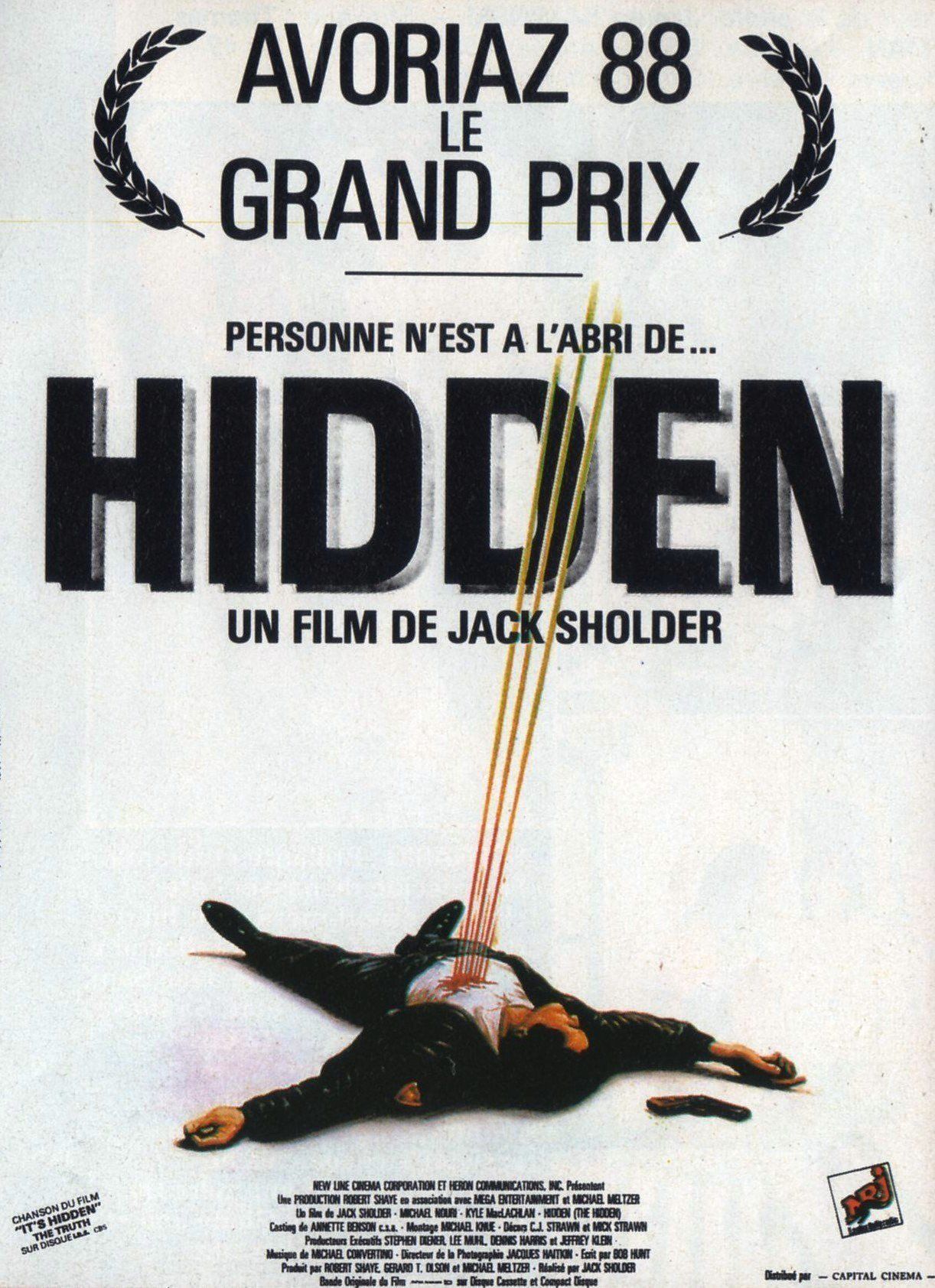
His dining room is in a sort of stylish library, where the family take breakfast and dinner and entertain guests.
#The hidden movie part 1 tv#
His set in the TV studio is similarly surrounded by books. He's surrounded by them, when he works, relaxes, eats. It's also very cinematic, with the water and the noise - nothing more profound than that.'

If we'd have chosen football or skiing, the audience wouldn't believe he's good enough to be on the team. Haneke says: 'We chose swimming because the young actor who plays Pierrot can swim well. Does the water perhaps signify a sort of religious motif of ritual cleansing? Does it connect to the drownings of more than 200 Algerians in the River Seine after the clashes with the police on 17 October 1961, deaths rarely spoken about in the French media and the riots which made Majid an orphan? But is this a flashback to a happier time? There is also a mysterious swimming coach, whose voice we hear, and who we see only in silhouette, but he obviously knows Pierrot and his family. In fact, it's the only time we see them happy together. Pierrot swims for his school and in one scene wins a race, which delights his parents who are attending the gala. If you tell it well, people are never sure if you're joking.'

I think it sits well here because it makes people ask if it's true or not. Haneke says: 'I heard this joke at a dinner party once and thought it so good I wrote it down when I got home and always wanted to use it. Binoche is again wearing one of her sack-like dresses, which are a key part of her deliberately pared-down style. The guests chat idly of the misfortunes of others, complaining that in divorce, one always has to take sides. The dinner party is part of Haneke's extended critique of middle-class mores. It's an unsettling story, which ends in a burst of mock violence, but prepares the way for a sudden act of violence to occur later. The joke, told by actor Denis Podalydes, brings themes of karma and retribution and of scars from the past remaining visible into the present. But my film isn't a thriller and who am I to presume to give anyone an answer on how they should deal with their own guilty conscience?'Ģ What is the significance of the shaggy dog story told at the dinner party? 'People are only asking, "whodunnit?" because I chose to use the genre, the structure of a thriller, to address the issues of blame and conscience, and these methods of narrative usually demand an answer. To ask this question is to avoid asking the real question the film raises, which is more: how do we treat our conscience and our guilt and reconcile ourselves to living with our actions?

But if you come out wanting to know who sent the tapes, you didn't understand the film. If you think it's Majid, Pierrot, Georges, the malevolent director, God himself, the human conscience - all these answers are correct. Haneke says: 'I'm not going to give anyone this answer. Is it Majid, the son of Algerian farmhands, sent to an orphanage and now an old man seeking revenge for a ruined life? Or is it Majid's own son, avenging on behalf of his father? Were Pierrot and his school friends playing a prank on the fancy TV star dad, the 'bobos' as Georges refers to himself? Or, as suggested by the much-talked-about final shot of the school steps, are Pierrot and Majid's son in cahoots?Ĭould it be Georges sending the tapes to himself, trying to frame Majid as a stalker? Or could it even be the film-maker away writing a scenario that the group of friends talk about during the dinner party? I've even seen a suggestion that it was Georges's elderly mother. I rang the director and put five key questions to him in a bid to solve some of Hiddens riddles. I can't recall a film in the last decade that has provoked so many theories, nor demanded so many explanations - none of which appear to satisfy, simply feeding the appetite, rather, for second viewings and yet more interpretations. Out of this, Haneke crafts a thriller that has audiences twitching with suspicion, letting out gasps at the film's one moment of violence and emerging from the cinema in deep discussion.


 0 kommentar(er)
0 kommentar(er)
